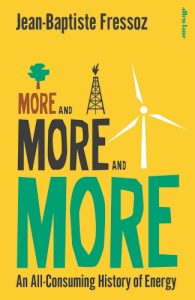- 23 Sep 2025
- 24 Sep 2025
Registration & refreshments
Keynote opening session
Speakers:
- Emma Pinchbeck | CEO, Climate Change Committee
- Jonathan Mills | Director General for Energy Markets and Supply & Senior Responsible Owner for the Clean Energy Superpower Mission, Department for Energy Security and Net Zero
Plenary session: The context for electrification
This session will look at some of the factors that are shaping the direction and pace of the move toward a more electric economy. It is expected that the speakers will examine the positive and countervailing forces arising from the international geopolitical and climate context. They will address to cover the state of the UK economy and positions taken by UK political parties on the overall need for increased electrical generation and transmission capacity, and smarter, more flexible consumptions.
Chair:
- Joanna Whittington | Vice President, BIEE
Speakers:
- Jane Dennett-Thorpe | Deputy Director Net Zero Strategy, Ofgem
- Richard Druce | Senior Managing Director, NERA
- Mallika Ishwaran | Group Chief Economist, Shell International
Q&A
Lunch & BIEE AGM
Parallel sessions
Room: Auditorium
Chair: Juliette Richards, NESO
13:15
A forward energy market to improve reliability and resiliency
Peter Cramton, University of Maryland
13:32
Demand flexibility and price elasticity: an analysis of the intra-day price elasticity of demand
Jose Luis Ramirez-Mendiola, University of Reading
13:49
Unlocking consumer-led flexibility: Governance challenges on the road to clean power 2030 and beyond
Richard Hoggett, University of Edinburgh
14:06
Governing flexibility: Trust, time and agency in automated demand-side flexibility
Helen Poulter, University of Sussex
14:23
Learning from developing and trialling the capability to procure flexibility from a portfolio of domestic heat pumps
Luke Harker, National Grid
14:45 Close
Room: Nash West
Chair: Sally Lewis, National Grid
13:15
Energy, infrastructure, and capital: the battle for investment in a new economic order
Adeolu Adesanya, NESO
13:32
Grid equity: who pays in the age of prosumers?
Dimitra Apostolopoulou, Oxford Institute for Energy Studies
13:49
Scotland’s renewable energy Community Benefit Funds: Re-distributing what, when and where?
Matthew Hannon, University of Strathclyde
14:06
Barriers affecting distributed solar PV generation in Chile: A developers’ perspective
Claudio Agostini, Universidad Adolfo Ibañez
14:23
High costs of capital hinder the equity, speed and abatement potential of solar and wind deployment globally
Luke Hatton, Imperial College London
14:45 Close
Room: Nash East
Chair: Vivienne Geard, EY
13:15
The importance of the UK electricity network flexibility in achieving offshore wind expansion targets: a computable general equilibrium analysis
Abdoul Karim, CEP University of Strathclyde
13:32
Assessing the extent of hydrogen integration in the UK’s 2050 decarbonisation pathways and subsequent distributional impacts using a novel agent-based whole systems model
Sharwari Dixit, Imperial College London
13:49
Policies to kick-start green hydrogen production at scale
An Vu, Cambridge Econometrics
14:06
The home energy transition: charting the rise of solar and battery storage
Joseph Wheatley, University College Dublin
14:23
Building a complex model for decarbonising home energy demand, without requiring coding
Simon Rayner, Climate Change Committee
14:45 Close
Room: Studio
Chair: Tim Foxon | Professor of Sustainability Transitions, University of Sussex
This debate will discuss UK Government’s economic framing to examine how these provide opportunities and constraints for UK energy policy. The dominant framing sets energy policy as part of a wider (green) growth strategy by providing opportunities for investment and job creation, as well as contributing to national security by reducing exposure to international fossil fuel markets, and helping to keep users’ energy bills down. However, this tends to lead to a focus on energy supply options, including nuclear power and carbon capture and storage, which can stimulate investment but are potentially expensive and unproven at scale.
Some academic and policy analysts are proposing an alternative framing. The low energy demand pathways for the UK developed by CREDS (Barrett et al., 2023) emphasise the potential for reducing the UK energy demand by 50% by 2050 through a combination of energy efficiency and sufficiency measures across a range of sectors. This may be argued to be more consistent with a ‘post-growth’ framing of improving human wellbeing within planetary boundaries. UK Local Authorities are adopting a range of approaches to assess the co-benefits and wellbeing impacts of climate action measures, including tools based on the doughnut economy model.
This ‘dialogue’ debate style session will feature a panel of experts to discuss these issues.
Panel:
Sean McDaniel | Lecturer in British Politics, University of Leeds
Anna Murphy | Head of Policy Appraisal, S-Curve Economics
Jaya Sood | Senior Economist, New Economics Foundation
Refreshment break
Student & young energy professionals showcase
Chairs:
- Vivienne Geard | Assistant Director, EY
- Anas Karkoutli | PhD Student and Research Assistant, CEP University of Strathclyde
Presentations
A framework for inclusive and equitable energy and transport modelling
Marissa Bergman, University College London
Trust, privacy and energy data governance: Understanding UK consumer perspectives in smart home energy device adoption
Prakarsh Mishra, University of the West of England (UWE)
The financial impacts of non-physical trader NIV chasing on Great Britain’s balancing mechanism
Joseph Cary, University of Oxford
Kicking the dirt in the sandbox: Consumer-centric business models-archetypes for energy communities
Georgia Giannakidou, Audencia Business School
Community-led flexibility in the UK energy transition: A mixed-methods assessment of equity, demand reduction, and system flexibility
Federico Gambedotti, University College London
Sustainability challenges in cross-sector partnerships for advancing the sustainable energy transition in resource-rich nations: An institutional theory perspective
Firyuza Nafasova, University of Reading
Social embedding of retrofit products and services for a sustainable economy in the West of England
Pujan Ghosh, University of the West of England (UWE)
Dynamic electricity tariffs are not as risky as they seem: Peak-to-bill anxiety
Lorenzo Matthias Burcheri, University of Luxembourg
Smart metering: an unjust gateway to low-carbon energy?
Jan Jasinski, University of Strathclyde
Evaluating Thailand’s EV charging infrastructure: Spatial disparities and policy implications for 2030 adoption goals
Apantree Wongraksa, Electricity Generating Authority of Thailand
Refreshment break
Plenary session: Solutions and innovation
This session will address the expected demand evolution for different uses, sectors of the economy and types of consumer, including residential, commercial and industrial. Topics include the pace and impact of electric transportation across all sectors and levels, including electric vehicles, freight, planning issues and charging infrastructure. Speakers are expected to address the contributions that will be made by demand flexibility, battery solutions, and long-duration storage. It will discuss the role of fossil fuels, electricity, renewables, carbon capture and storage, different types of generation including combined heat and power, energy-from-waste, and the role of hydrogen as energy sources.
Chair:
- Richard de Caux | Head of End Use Energy Demand, bp
Speakers:
- Craig Lucas | Development Director – Energy Systems, Mott MacDonald
- Mercedes Maroto-Valer | Director, UK Industrial Decarbonisation Research and Innovation Centre (IDRIC) & Deputy Principal (Global Sustainability), Heriot-Watt University
- Jon Saltmarsh | Chief Technology Officer, Energy Systems Catapult
Poster session and drinks reception
P.01
Weighed in the balance – how well do the EU appliance regulations contribute to a just energy transition?
Fiona Brocklehurst, Ballarat Consulting
P.02
A techno-economic modelling of a decarbonised power grid with flexibility and equity considerations
Qikun Chen, University of Surrey
P.03
Charging Ahead: Rethinking Transmission Tariffs to Reflect the Costs of Renewable Integration
Michael Dawes, NERA
P.04
How Harmful are Fossil Fuel Subsidies to the Diffusion of Low-Carbon Energy Technologies?
Stephen Taiwo Onifade, University of Vaasa
P.05
Closing the loop, Clearing the Air – The Impact of Circular Economy Practices on Road Freight Transport Emissions in the United Kingdom
Kashvi Gupta, University of Glasgow
P.06
Strategic Pathways and Uncertainty Management in Saudi Arabia’s Energy Transition
Haifa Alharthi, University College London
P.07
Scenarios of Data Centre Driven Power Demand Growths in Great Britain
Fang Fang, ClimaCore (Independent Research & Insights)
P.08
Growth convergence in Africa: focusing on the role of various types of capital (natural, human and produced capital)
Nxalati Baloyi, University of Stellenbosch
Conference dinner
After dinner speaker
Jean-Baptiste Fressoz | Historian of Science, Technology and the Environment, CNRS & Ecole des Ponts et Chaussées
Author of More and more and more. An All Consuming History of Energy, (Penguin, 2024)
Diversity & skills breakfast session
An interactive breakfast session hosted by POWERful Women

POWERful Women is working for a gender-balanced, diverse and inclusive energy sector. We challenge and report on progress, support and connect women to advance their careers and provide practical support to companies to achieve their diversity and inclusion goals. Find out more about our “40% by 2030” ambition: www.powerfulwomen.org.uk
Debate: Making market arrangements work
Chair:
- Michael Grubb | Professor of Energy and Climate Change, University College London
Panel members:
- George Anstey | Senior Managing Director, NERA
- Rebecca Beresford | Director of Markets, National Energy System Operator (NESO)
- Johnny Gowdy | Director, Regen
- Rebecca Sedler | Managing Director, Interconnectors, National Grid Ventures
Refreshment break
Parallel sessions
Room: Auditorium
Chair: Sonja Dragojlovic-Oliveira | University of Strathclyde
10:30
Offshore wind for the energy system transition: Consumer’ support and preferences for the UK expansion plans
Gaetano Grilli, Norwich Business School
10:47
Decarbonising Heat: The Impact of Heat Pumps and a Time-of-Use Heat Pump Tariff on Energy Demand
Andrew Schein, Centre for Net Zero
11:04
Consumers and the recovery of costs of energy infrastructure investment
Elizabeth Vourdas, Ofgem
11:21
Community Benefit Funds: Governance, Good Practice and Intermediary Impact
Rebecca Gowens, University of Strathclyde
11:38
Accelerating energy efficiency retrofits in owner-occupied homes: An international review of good practice policies
Richard Hanna, Imperial College London
12:00 Close
Room: Nash West
Chair: Vivienne Geard, EY
10:30
Rekindling old emissions trading flames – impacts and policy lessons for a link between the UK and EU ETSs
Joel Davis, NERA
10:50
Environmental co-benefits of carbon taxation on air pollution under a low-carbon pathway in Chile
Shahriyar Nasirov, Universidad Adolfo Ibañez
11:10
Institutional investors and stringent climate policies
Sarah Najm, Newcastle University Business School
11:30
Net Zero in Peril? The case for a new ‘low carbon social contract’ in the UK
Donal Brown, University of Sussex
11:50 General discussion / Q&A
12:00 Close
Room: Nash East
Chair: Andre Gentil-Kraatz, Ikarus Capital Advisory
10:30
Developing an Energy Security Monitoring Framework Fit for UK Net Zero
Richard Carmichael, Imperial College London
10:50
Accelerating transitions? Planning for decarbonisation in local and regional energy systems
Helen Poulter, University of Sussex
11:10
The Road Ahead: Navigating the Energy Transition through Market Evolution, Value Chains, and Industry Pacesetters
Sam Hollister, LCP Delta
11:30
How Did British Generators’ Output Patterns Respond to Demand, Costs and Renewable Generation?
Richard Green, Imperial College London
11:50 General discussion / Q&A
12:00 Close
Room: Studio
Chair: Paul March, DESNZ
10:30
Impact of utility-scale solar farms on United States agricultural production
Jerome Dumortier, Indiana University
10:50
Enhancing the energy transition through offshore hybrid assets: A socio-economic welfare analysis
Cyrielle Mainguy, National Grid
11:10
Advancing net-zero investment in capital lease green energy projects through an expanded adjusted present value framework
Mustafa Alkhabbaz, Saudi Aramco
11:30
Marginal curtailment spillovers in renewable electricity portfolios: Implications for least-cost zero-carbon systems
David Newbery, EPRG University of Cambridge
11:50 General discussion / Q&A
12:00 Close
Lunch
Parallel sessions
Room: Nash East
Chair: Catarina Cardoso, University of Westminster
13:00
CfD Allocation Round 7 and 8: Estimates of inframarginal rent and options for reducing impacts on bills
Will Blyth, Oxford Energy Associates
13:20
Household travel behaviour and fuel prices: New evidence from energy crises
Tong Zhu, University of Dundee
13:40
Co-operation, Fragmentation, and Justice in Accelerating Local Energy Transitions: Case studies in England and Wales
Sheridan Few, University of Leeds
14:00 General discussion / Q&A
14:15 Close
Room: Nash West
Chair: Paul Spence, Conference Committee Chair
13:00
The role of interconnectors in a flexible and secure energy system
Rob Rome, National Grid
13:17
The energy revolution: How data will make or break net zero
Orlando Minervino, Xoserve
13:34
Heat to Power: Modelling Peak Gas Demand through the Energy Transition
Zoe Fannon, NERA
13:51
How the facets of energy security impact the support for energy sources: Evidence from UK household data
Andreas Markoulakis, University of Warwick
14:15 Close
Room: Auditorium
Chair: Janet Wood, New Power Magazine
13:00
Industrial Energy Efficiency Rebound Effects
Jennifer Dicks, Cambridge Econometrics
13:17
Accelerating UK industrial decarbonisation while driving growth: challenges and opportunities
Peter Taylor, University of Leeds
13:34
Opportunity or obstacle? Industrial decarbonisation and its implications for the UK’s national competitiveness
Anas Karkoutli, CEP University of Strathclyde
13:51
Rethinking Energy Metrics: The Fallacy of Primary Energy and Its Policy Consequences
Jan Rosenow, ECI University of Oxford
14:15 Close
Room: Studio
Chair: Fang Fang | ClimaCore (Independent Research & Insights)
As Great Britain embarks on its first suite of Strategic Energy Planning Frameworks in decades (Strategic Spatial Energy Plan, Centralised Strategic Network Plan and Regional Energy System Plans), energy system modelling must evolve to reflect deeply integrated electricity, hydrogen, gas, renewables, and flexibility at both national and regional scales. This expert panel convenes leading modellers from NESO, DESNZ and academia to explore technical frontiers in whole system modelling: from sector coupling and spatial granularity to the interfaces between national and regional models and scenario-based optimisation. We will probe core methodological challenges and implications for system architecture, policy alignment and investment planning. The session aims to spark cross-sector collaboration and influence the design of Britain’s long-term energy system planning.
Panel:
Robert Gibson | SSEP Senior Analysis Manager, NESO
Thomas Heggarty | Research Engineer, RTE
Francisca Jalil-Vega | Research Fellow in Hydrogen Systems, University College London
Paul March | Deputy Director, Energy and Emissions Modelling , DESNZ
Refreshment break
Plenary session: Transition and investment
This session will explore critical role investment and finance plays in the energy system transition including the role of international cooperation, funding growth, and government roles. It will address the possible evolution of the UK electricity market, examining the status and pace of progress on market design, locational pricing, transmission access, and grid queue arrangements. Speakers will also examine the system evolution including the issues surrounding the maintenance of legacy infrastructure, funding for decommissioning as well as the build out of new infrastructure.
Chair: Donna Leong | Director of Analysis and Chief Economist, Department for Energy Security and Net Zero
Speakers:
- Sheer Khan | Chief Impact Officer and Chief Economist, National Wealth Fund
- Rosalind Smith-Maxwell | Senior Director, Quinbrook Infrastructure Partners
- John Tindal | Head of Market Design, SSE
Q&A
BIEE Conference close
Oxford Energy Day 2025 – panel discussion, drinks reception and poster sessions
The Oxford Energy Network, organisers of the 13th Oxford Energy Day 2025, would like to invite conference delegates to attend the final plenary session at the Oxford Energy Day from 4.10pm until 5pm, on 24 September at the Mathematics Institute, Radcliffe Observatory, Woodstock Road, OX2 6GG (approximately 10 minute walk from Worcester College).
The session will include a panel discussion led by Paul Shearing, Director of the ZERO Institute, University of Oxford. The panel will be sharing their insights on the Energy Day, and a brief overview of the BIEE conference will be given by the BIEE organisers. This is followed by a drinks reception and poster session, from 5pm until 6.30pm, offering the opportunity to network with academics, early career researchers and other energy experts.
Please indicate your attendance to this co-located session/reception during registration.
Sponsors
Gold sponsor

Silver sponsors







Comments for BIEE Members only.
Sign in or become a member today.